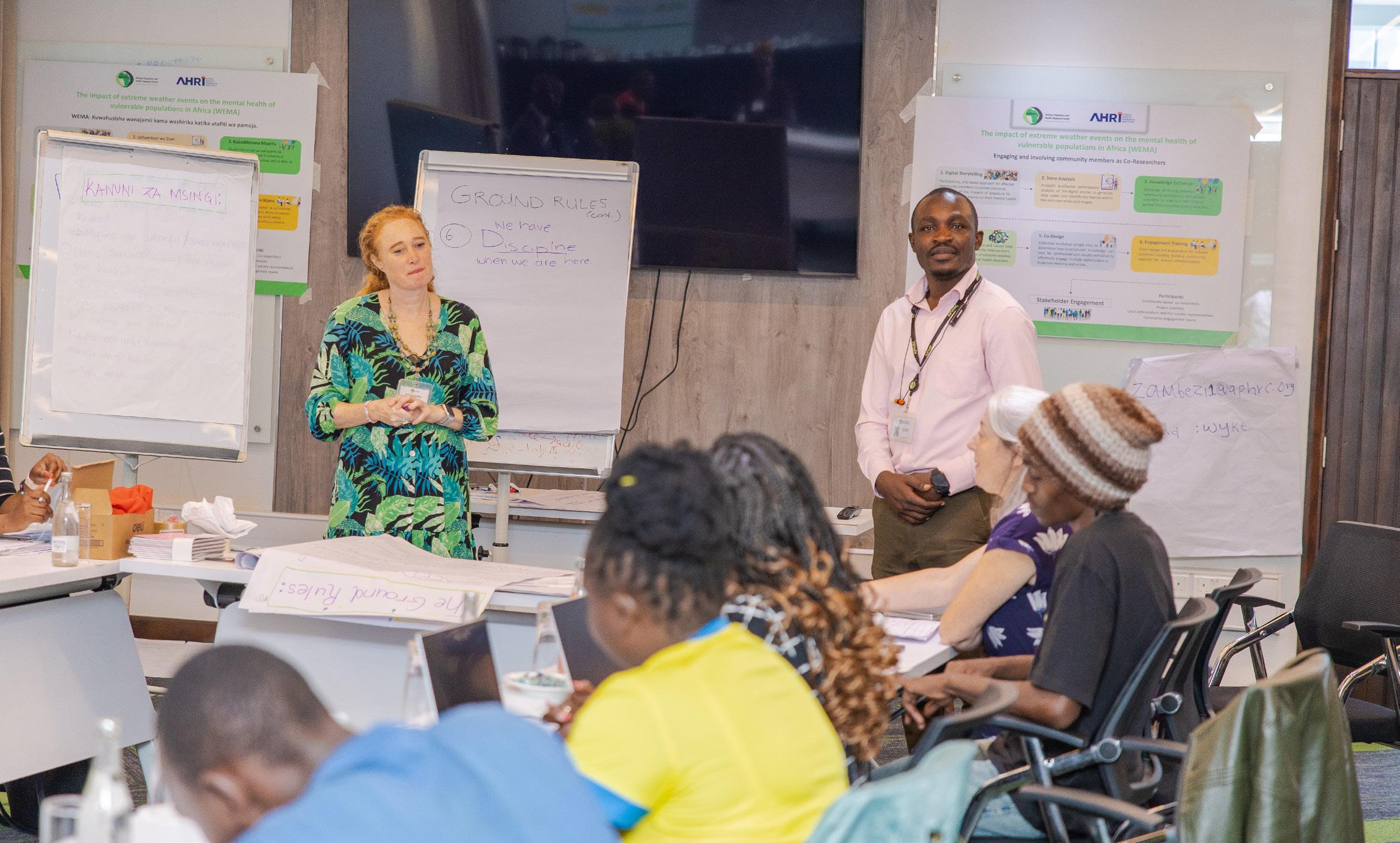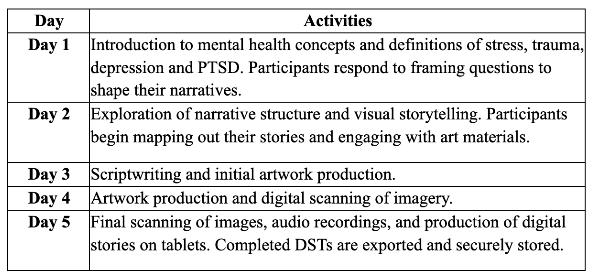
4 minute read
Insights for Climate Mental Health
text: Dr Chanelle Mulopo and Dr Astrid Treffry-Goatley photo: supplied
Climate change is accelerating the frequency and severity of extreme weather events — heatwaves, floods, and droughts — with devastating consequences for already vulnerable populations in sub-Saharan Africa. These events disproportionately affect communities in resource-poor settings where the burdens of illness, poverty, and infrastructural limitations are high. Yet among the wide-ranging health impacts of climate crises, the mental health consequences remain underexplored.
The WEMA (The Impact of Extreme Weather Events on the Mental Health of Vulnerable Populations in Africa) project seeks to address this evidence gap. Our focus is the direct impact of extreme weather events (EWEs) on the development of common mental disorders (CMDs)—such as depression, anxiety, and posttraumatic stress—amongst vulnerable populations in Burkina Faso, Kenya, Mozambique, and South Africa.
A transdisciplinary team has formed to tackle this complex task, including climate scientists, psychiatrists, epidemiologists, statisticians, data scientists, social scientists, civil society leaders, engaged research specialists, media professionals and affected community members.
Why Participatory Methods Matter
Too often, climate research relies on top-down models that exclude the everyday realities of those most affected. WEMA challenges this approach by positioning lived experience as expert knowledge. By engaging affected individuals as equal partners in research, we promote inclusion, disrupt extractive research practices, and create space for new insights to emerge.
One of our key participatory methods is Digital Storytelling (DST). This data-generation process enables individuals to create short multimedia videos that reflect their personal experiences. In WEMA, DST will be used to generate community-authored data and make visible the nuanced, often-overlooked mental health impacts of EWEs.
At each site, Dr Astrid Treffry-Goatley and Dr Gill Black are facilitating five-day DST workshops in collaboration with local community engagement specialists. These workshops equip participants with skills in scriptwriting, image creation, voice recording and basic digital editing. Dr Chanelle Mulopo is a postdoctoral research fellow on the WEMA project. She oversees the day-to-day operations and will be leading aspects of the analysis from the DST workshops.
Workshops in Kenya and South Africa
To date, we have conducted DST workshops in two locations: Nairobi, Kenya, and Durban, South Africa. In both sites, communities had recently experienced severe flooding. A total of 18 community-based coresearchers, men and women over the age of 18, participated. Each created a unique digital story reflecting on how a personal experience of flooding disrupted their homes, families, and affected their mental health. In Kenya, psychologist Simione was present throughout the workshop to provide psychological support. In Durban, Samke, a registered social worker, ensured the well-being of participants. This emphasis on mental health support was critical, given the emotional weight of revisiting traumatic events. As one CBCR reflected: “I have never shared what happened to us during the floods with anyone.”
Research Outcomes and Reflections
The DST process has been transformative, not only for participants but for the research team. Crucially, these participatory methods reposition community members as co-owners of the research. Their insights deepen our understanding of how people make sense of climate change, how they cope, and what support systems are—or are not—available.
As one participant expressed: “We are very happy that you came here, spent time with us, and listened to how the floods impacted us.”
To watch participant Ashford Salim’s digital story, created during the Kenya workshop, follow this link
Acknowledgements
This work would not have been possible without the dedication and care of our community engagement teams, their work in preparing communities and supporting the DST workshops was essential to the success of this research. From Kenya (African Population and Health Research Center): Lucy Akinyi and Henry Owoko Odero. From South Africa (Africa Health Research Institute): Ruth Mthembu, Dr Sithembiso Ndlovu, and Luthando Zuma.
ABOVE: Kenya DST workshop, 12-16 May 2025. BELOW: DST Workshop Structure/Daily Activities.











